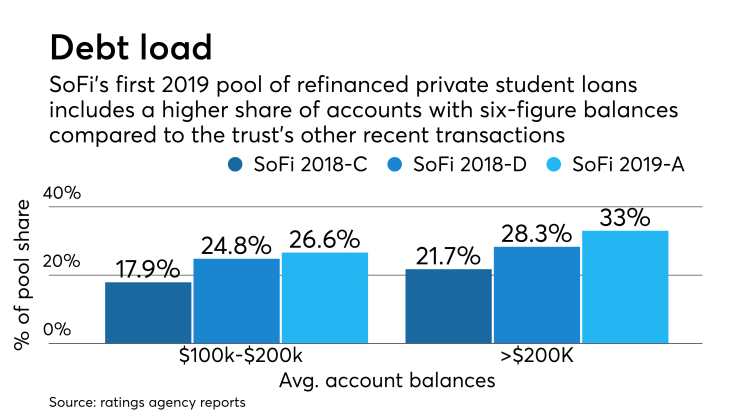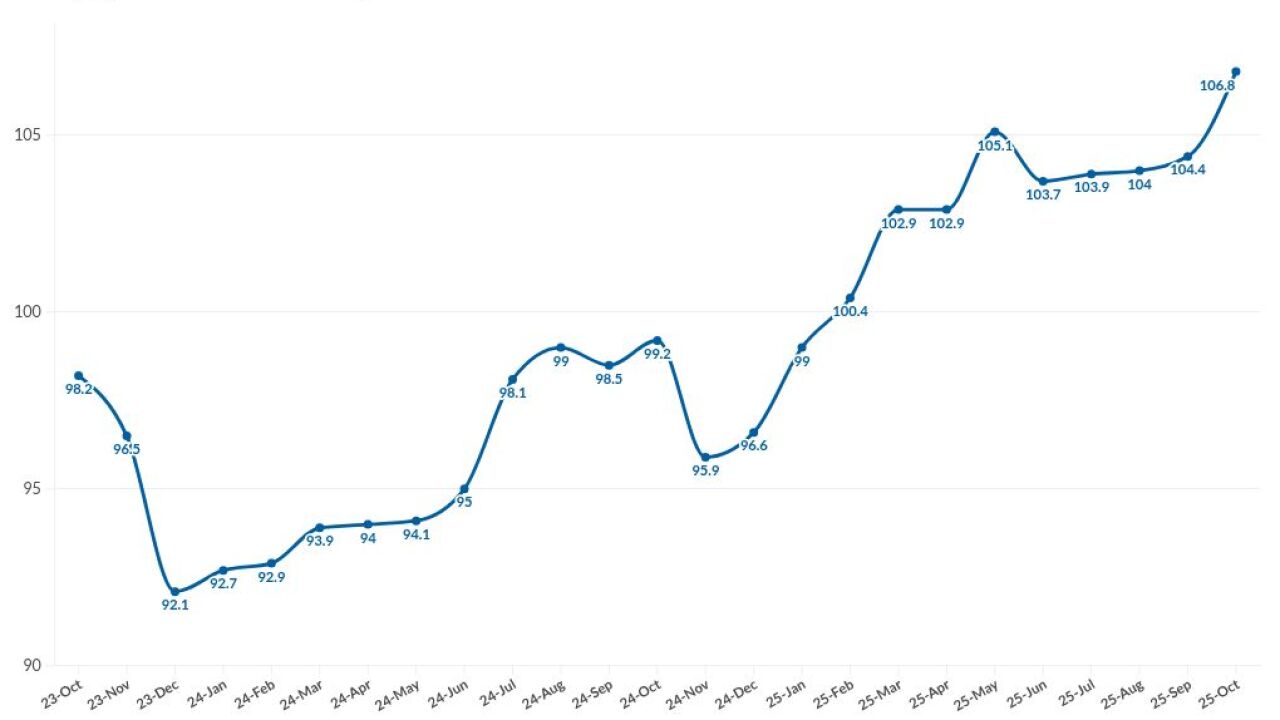Social Finance's next student loan securitization features higher exposure to physicians, and fewer of them are still in a residency program, according to rating agency reports.
Borrowers with medical and dental degrees are considered to be good credits in part because they have some of best employment prospects. They account for 28.8% of borrowers in the pool of collateral who have medical degrees, up from 22% for SoFi's previous student loan securitization, according to Moody's Investors Service.
Notably, fewer of these, 4.2% versus 7.8%, are completing their training in a residency or fellowship, during which they
SoFi's medical residency loans allow borrowers to make payments of as little as $100 a month until they complete their programs.
The $482 million SoFi Professional Loan Program 2019-A Trust will issue three tranches of notes; two senior Class A tranches of fixed rate notes, one totaling $250 million and the other $195 million, carry preliminary triple-A ratings from Moody’s, S&P Global Ratings and DBRS; there is also a $37 million tranche of Class B notes that is rated AA by DBRS alone.
Credit enhancement on the senior notes is 11.23%, down from 12.19% in SoFi's final transaction of 2018.
Like previous SoFi transactions, the Class A notes, which have a weighted average life of 3.75 years, benefit from a full-turbo feature that applies all remaining funds after payment of interest on notes and transaction fees toward the principal of the senior notes.

Deutsche Bank Securities, Goldman Sachs, J.P. Morgan Securities and Mizuho Securities are the initial purchasers.
The notes are backed by $500 million of loans.
Nearly all of the loans were contributed to the trust by SoFi, although some were contributed by Goldman Sachs, according to S&P.
In some respects, the credit quality of the collateral is somewhat weaker than SoFi's prior deal.The pool’s average 775 FICO is lower than that of the previous
SoFi 2019-A's weighted average fixed-rate coupon on the loans is 5.57%, up from 5.31% for SoFi 2018-D.
However, the borrowers have an average income of $177,554 and undergraduate/post-graduate degrees from major, top 100 universities across the country (as rated by U.S. News & World Report). Other pluses include the fact the schools in the SoFi pool have weighted-average three-year cohort default rate of 3.52% vs. 7% for private four-year schools, and servicing costs are comparably modest with more than 81% of loan payments handled by automated clearing house arrangements.
S&P expects net losses of 2.25% over the life of the transaction, the same assumption level for five previous SoFi student-loan ABS transactions. Moody’s is maintaining cumulative net loss expectations of 2%.
In its presale report, Moody's called attention to the "tail risk" in the deal, which is similar to that of SoFi 2018-D owing to its exposure to 20-year loans. The 20-year loan concentration is 22.2% for 2019-A, compared with 20.6% for 2018-D. Moreover, borrowers with 20-year loans in the latest pool have lower weighted average credit scores and slightly lower free cash flow, leaving the loan pool with weaker borrowers and a higher probability of default at the tail end.
Since its inception in 2011 through Nov. 30, 2018, SoFi has originated approximately $21.8 billion in refinancing student loans. During this period, it charged off only $45.6 million in the aggregate principal amount of its refinancing loans (approximately a 0.21% default rate).





